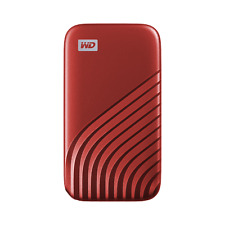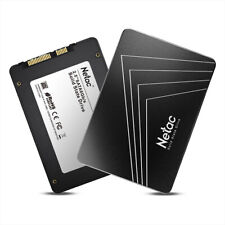-
Senior Member
registered user
FourTrackMind,
I don't think this was a "debate", nor do I think you two were in the "arguement", on this subject. What I think is that "programmers" know things "you do", and things "you don't do", and that a musician knows the "do's and don'ts" - each from their own world - so to speak...
Let me see if I can explain a "programmers" view-point, in a "musicians" view-point...
(1) Since the "landmark" ruleing from Microsoft vs Apple - judgement was for Microsoft, on the grounds that you can not copyright a "look and feel" kind of thing - Microsoft was accused of, in which they DID, steal the idea of Mac OS, in their own Windows OS. Unfortunately, as it was, Apple had "stollen" the idea of the Mac OS from Xerox, but that is a different story... Thus, no one can "protect" a "look and feel", it is currently done at the "code" level, as far as I know. That means, if you want to "protect" a program, or a OS, you send in "reams" of code to have it copyrighted. As far as I know, any part of that code is NOW protected.
(2) Later on, when IBM released the OS/2 operating system, to avoid being hit with a lawsuit from Microsoft, IBM chose to use a "shredder" instead of a "trashcan", just in case - or so I heard.
(3) If you ever look at the "legal notice" that is used to seal a cdrom in, or the check box when you fire up a program that you need to "Accept" these terms. If you read through, most of them, it will state that the copyright includes "not reverse engineering" the software. This "term" is used to protect the code. Someone can get an editor, look at the actual binary, or hex, or octal, code, change a little of it, and then - illegally - re-release a new product.
Now, the explaination in a musicians terminology:
The way the software world works, and why such a big paranoia on this subject/thread, is, if you as a musician, HIRE someone to play background to your song, and it is released... You could have a lawsuit on your hands from any band, or performer, the person you hired to play background for you, was ever in. Even if the person you hired has nothing to do with colaboration, or any input in your song as far as its writting, sound, tempo, etc... Just the mere fact that they worked on someone elses music, has "tainted" your music, and thus, your music "could" be "based" on these other peoples music - even if it doesn't sound like it, look like it, or even play like it.
Take into another issue: Lawsuits. If your "record" company was just a small, backroom type, production company, of maybe $5,000 annual, and the other "record" company that is going to go up against you has, say, millions, could you stay in court, with all the fees, etc... as long as the other one could? Sooner or later, the money would run out, whereas, the other company could go on, pretty much for a long, long time - they could drag the case out for years - and during that time, you would not be allowed to sell your product, and quite possibly, your record company may get additional lawsuits on the grounds that "if you did it with this artist, you might have ALSO done it with any artist that is on your label".
The software world is more in its infantcy compared to the music industry - and then think about the music world just starting to see the "power" of downloading songs, and personal computer duplicating. The software world is "trying" to protect what it creates, but has a lot fewer ways of being able to do that, considering reverse engineering, and that, just maybe, a couple of "notes" get into the same pattern as someone elses, and a lawsuit begins thinking that the "whole" package must have been copied/duplicated.
I hope this helps, if not, it "ain't" my first useless post 
Cuddles
Similar Threads
-
By maxIT in forum General Support
Replies: 2
Last Post: 05-16-2005, 08:13 PM
-
By chris-harry in forum The Lounge
Replies: 39
Last Post: 02-11-2005, 09:52 AM
-
By ShadowAce in forum General Support
Replies: 1
Last Post: 01-04-2005, 07:35 PM
-
By rrfish72 in forum MS Windows & New to Linux
Replies: 3
Last Post: 10-20-2004, 09:57 AM
-
By ghostdancer in forum General Support
Replies: 2
Last Post: 04-29-2004, 09:50 AM
 Posting Permissions
Posting Permissions
- You may not post new threads
- You may not post replies
- You may not post attachments
- You may not edit your posts
-
Forum Rules


M.2 NVME SATA SSD Enclosure USB 3.2 Gen 2 10Gbps for M-Key or M+B Key SSD to 8TB
$19.86

WD 500GB My Passport SSD, Portable External Solid State Drive WDBAGF5000ARD-WESN
$59.99

SanDisk 2TB Ultra 3D NAND SSD, Internal Solid State Drive - SDSSDH3-2T00-G26
$117.99

WD 500GB My Passport SSD Portable External Solid State Drive WDBAGF5000AGY-WESN
$79.99

Patriot P210 128GB 256GB 512GB 1TB 2TB 2.5" SATA 3 6GB/s Internal SSD PC/MAC Lot
$14.99

Intel DC S3510 Series 120GB SSD 2.5" 6Gb/s SATA Solid State Drive SSDSC2BB120G6K
$8.99

Micron 5100 MAX 120GB SATA 6Gb/s 2.5" Internal SSD MTFDDAK120TCC Solid State
$8.99

Netac 1TB 2TB 512GB Internal SSD 2.5'' SATA III 6Gb/s Solid State Drive lot
$13.99

Fanxiang SSD 512GB 1TB 2TB 4TB 2.5'' SSD SATA III Internal Solid State Drive lot
$198.99

Fanxiang SSD 4TB 2TB 1TB PS5 SSD M.2 NVME SSD 7300MBS PCIe 4.0 Solid State Drive
$249.99



 Reply With Quote
Reply With Quote










